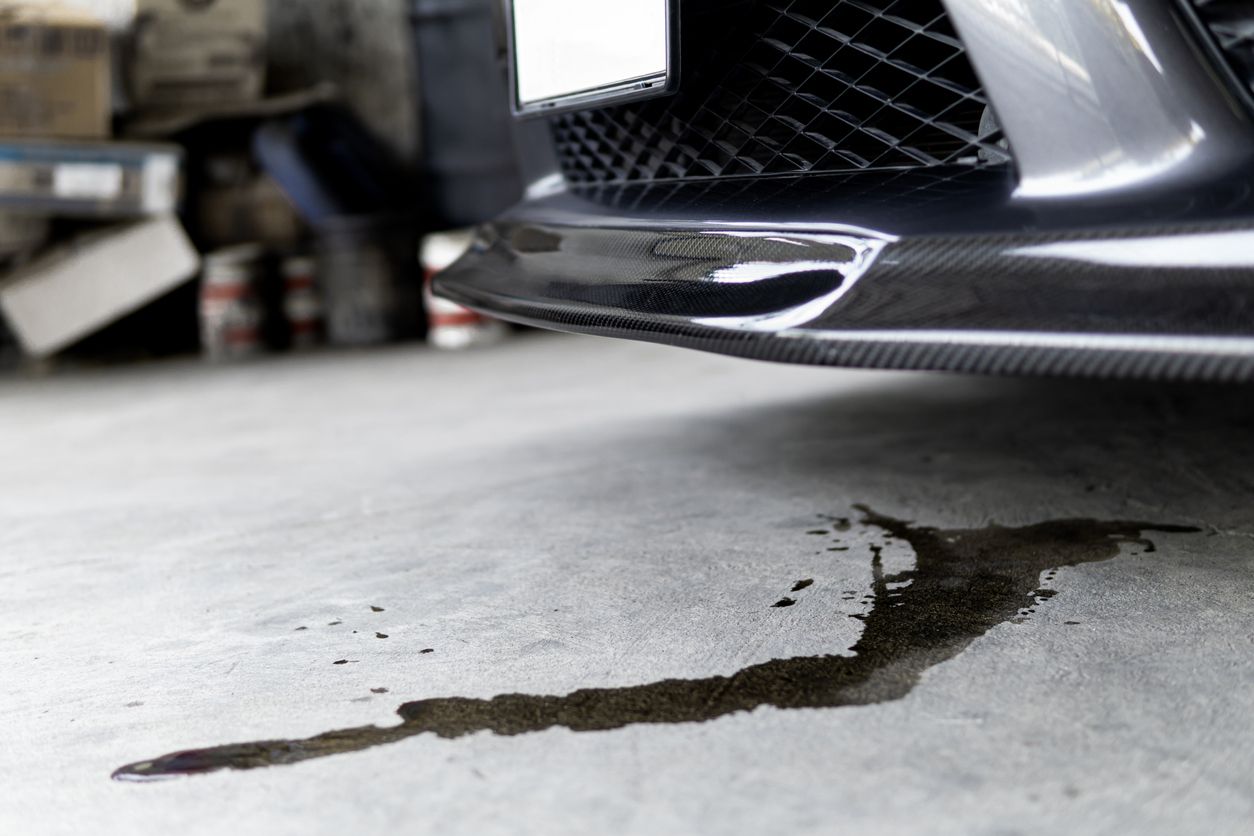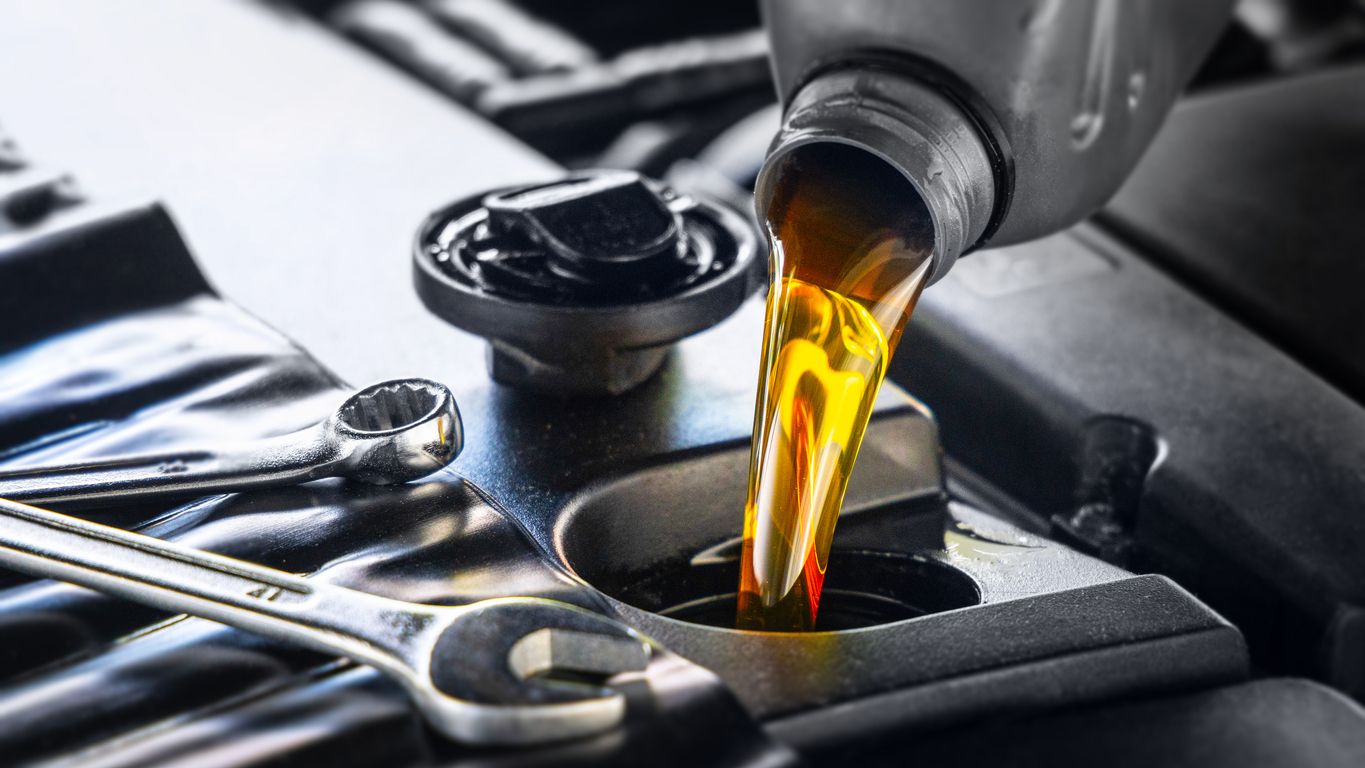Are oil changes a government conspiracy? Will your car explode if you don’t change the oil exactly on time? Can you use cooking oil as engine oil?
Most of us know that the answer to all of these questions is a hard “no.” But some of the more subtle motor oil myths leave us with serious questions like, “Once I go synthetic, can my car ever go back to conventional oil?” “If my oil is black, has it gone bad?” and, “Do I really have to change my engine oil every 3,000 miles?”
Don’t get set adrift in the endless ocean of oil myths — join us as we draw the line between oil change myths and facts. Discover the truth about oil changes to keep your engine running stronger, cleaner, and longer!
Myth #1: You Should Change Your Oil Every 3000 Miles
At some point in your life, you’ve probably been told that you need to change your engine oil every 3,000 miles or three months. If you’ve ever thought, “Hm, that seems excessive,” you’re likely right. This is one of those widely accepted oil change “facts” that is rarely factual anymore.
The 3,000-mile oil change myth comes from a time when engines and oil formulas weren't as optimized as they are today. Advancements in automotive and engine oil technology have drastically extended many oil change intervals — most modern vehicles only require oil changes every 5,000 to 7,500 miles.
Additionally, time isn’t a great indicator of when to change your oil. You may drive more or less than 5,000 to 7,500 miles in three months. With that said, if you’ve bought or inherited a car that hasn’t been driven in years, it’s probably best to change the oil before reviving it. Most vehicle manufacturers require at least one oil change per year even if the vehicle is rarely driven.
Ultimately, following your vehicle manufacturer’s specific oil change intervals is always best. They can be found in your car’s owner’s manual or the driver’s information center on your dashboard. If you can’t locate your owner's manual, check your repair and service recommendations online.
Myth #2: You Need to Change Your Oil Before a Long Road Trip
In the same vein, some believe that you should always change your oil before an extended road trip. While it’s certainly a good idea to ensure your vehicle is in good shape before a long drive, it may not be necessary to change your oil before one.
If there are plenty of miles left according to your oil change interval, ensuring that the oil level is correct before departing is still recommended. If your car is due for an oil change just after your return, it might be fine to wait until after the trip. Either way, there isn’t any harm in changing your oil early — if it brings you peace of mind, go for it!
Myth #3: Thicker Oil is Better for Your Engine
This is one of the most common car care myths out there, and like the 3,000-mile oil change recommendation, it comes from antiquated technology. In the 1960s, when classic Camaros and majestic Mustangs ruled the drag strips, there may have been some truth to this. Tolerances between engine parts were not as tight as they are now, and a thicker oil may have helped reduce some types of engine wear. But even back then, it was primarily the anti-wear additives like zinc dialkyl dithiophosphate (ZDDP) in the oil that provided proper wear protection in other types of engine wear (like in the valve train), not the viscosity itself.
Nowadays, using motor oil that is too thick may decrease engine efficiency at best. At worst, it can prevent proper lubrication (particularly on cold mornings), impact performance of some engine parts that rely on oil pressure as a hydraulic fluid, and lead to even more engine wear.
Some vehicles will experience an illuminated check engine light if the wrong viscosity oil is used. As such, many newer vehicles require lower viscosity grades to cater to tighter tolerances and provide better fuel economy.
The bottom line: if you have an unmodified engine, you should always follow the oil recommendation in your vehicle’s owner manual.
Myth #4: If Your Oil Is Black, You Need to Change It
Common sense says to change your oil when it turns black, but it may not be necessary. Engine oil darkens due to oxidation, which happens naturally as it goes through heating cycles. The detergents and dispersants in engine oil also clean your engine by absorbing soot, carbon, and other combustion byproducts, which further darken your oil.
Though it may not hurt your vehicle to change your oil before it's required, it can hurt your wallet. At the end of the day, black engine oil can be natural and indicate that it’s doing its job! The best thing you can do is change your engine oil and oil filter on par with your vehicle manufacturer’s suggested maintenance schedule.
Myth #5: Fully Synthetic Oil Causes Oil Leaks
When synthetic motor oil first gained attention in the 1970s, it was believed that the chemicals in synthetic motor oil caused your engine to leak. Some early synthetic formulations may have had compatibility issues with some seals. However, the engine oil industry quickly amended the formulation to include components that would improve seal compatibility, helping to keep them nice and pliable.
Nowadays, you should be safe to use synthetic oil without concerns about leaking. In fact, the truth about synthetic oils is that most are engineered to be better than conventional oils. A high-quality synthetic oil should withstand higher temperatures and is likely formulated to clean better and last longer than conventional oils.
Note: Always follow your vehicle manufacturer’s recommendations for engine oil viscosity and quality. Some manufacturers do not recommend synthetic oils in their engines.
Myth #6: Once You Go Synthetic, There’s No Going Back
One of the other full synthetic oil myths is that you can’t switch between synthetic and conventional oil. This myth comes from the misconception that, like water and oil, synthetic and conventional oils don’t mix.
Here’s our official notice: you can switch between conventional and synthetic oil without concern! In fact, motor oils that are labeled as a synthetic blend already contain both conventional and synthetic oils. So, feel free to use conventional or synthetic oil in your vehicle, so long as it fulfills your vehicle’s manufacturer viscosity and quality guidelines.
Myth #7: Oil Additives Boost Performance
Modern engine oil formulas already contain a balanced set of additives that maintain engine health. Adding extra additives may sound like more of a good thing, but will likely go against your vehicle manufacturer’s recommendations/warranty. And doing so could also upset the balance of your oil, potentially harming the engine.
Firestone Complete Auto Care Does Them Right
Visit your nearest Firestone Complete Auto Care for a quick oil change and free 19-point inspection from our knowledgeable technicians. Schedule your appointment today!



